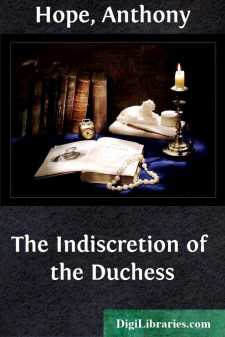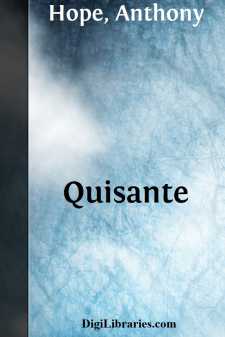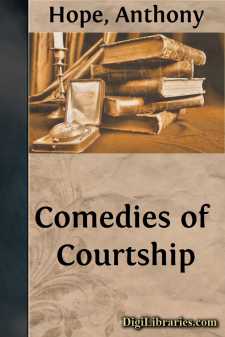Categories
- Antiques & Collectibles 13
- Architecture 36
- Art 48
- Bibles 22
- Biography & Autobiography 813
- Body, Mind & Spirit 142
- Business & Economics 28
- Children's Books 15
- Children's Fiction 12
- Computers 4
- Cooking 94
- Crafts & Hobbies 4
- Drama 346
- Education 46
- Family & Relationships 57
- Fiction 11828
- Games 19
- Gardening 17
- Health & Fitness 34
- History 1377
- House & Home 1
- Humor 147
- Juvenile Fiction 1873
- Juvenile Nonfiction 202
- Language Arts & Disciplines 88
- Law 16
- Literary Collections 686
- Literary Criticism 179
- Mathematics 13
- Medical 41
- Music 40
- Nature 179
- Non-Classifiable 1768
- Performing Arts 7
- Periodicals 1453
- Philosophy 64
- Photography 2
- Poetry 896
- Political Science 203
- Psychology 42
- Reference 154
- Religion 513
- Science 126
- Self-Help 84
- Social Science 81
- Sports & Recreation 34
- Study Aids 3
- Technology & Engineering 59
- Transportation 23
- Travel 463
- True Crime 29
Rupert of Hentzau
by: Anthony Hope
Categories:
Description:
Excerpt
CHAPTER I. THE QUEEN'S GOOD-BY
A man who has lived in the world, marking how every act, although in itself perhaps light and insignificant, may become the source of consequences that spread far and wide, and flow for years or centuries, could scarcely feel secure in reckoning that with the death of the Duke of Strelsau and the restoration of King Rudolf to liberty and his throne, there would end, for good and all, the troubles born of Black Michael's daring conspiracy. The stakes had been high, the struggle keen; the edge of passion had been sharpened, and the seeds of enmity sown. Yet Michael, having struck for the crown, had paid for the blow with his life: should there not then be an end? Michael was dead, the Princess her cousin's wife, the story in safe keeping, and Mr. Rassendyll's face seen no more in Ruritania. Should there not then be an end? So said I to my friend the Constable of Zenda, as we talked by the bedside of Marshal Strakencz. The old man, already nearing the death that soon after robbed us of his aid and counsel, bowed his head in assent: in the aged and ailing the love of peace breeds hope of it. But Colonel Sapt tugged at his gray moustache, and twisted his black cigar in his mouth, saying, "You're very sanguine, friend Fritz. But is Rupert of Hentzau dead? I had not heard it."
Well said, and like old Sapt! Yet the man is little without the opportunity, and Rupert by himself could hardly have troubled our repose. Hampered by his own guilt, he dared not set his foot in the kingdom from which by rare good luck he had escaped, but wandered to and fro over Europe, making a living by his wits, and, as some said, adding to his resources by gallantries for which he did not refuse substantial recompense. But he kept himself constantly before our eyes, and never ceased to contrive how he might gain permission to return and enjoy the estates to which his uncle's death had entitled him. The chief agent through whom he had the effrontery to approach the king was his relative, the Count of Luzau-Rischenheim, a young man of high rank and great wealth who was devoted to Rupert. The count fulfilled his mission well: acknowledging Rupert's heavy offences, he put forward in his behalf the pleas of youth and of the predominant influence which Duke Michael had exercised over his adherent, and promised, in words so significant as to betray Rupert's own dictation, a future fidelity no less discreet than hearty. "Give me my price and I'll hold my tongue," seemed to come in Rupert's off-hand accents through his cousin's deferential lips. As may be supposed, however, the king and those who advised him in the matter, knowing too well the manner of man the Count of Hentzau was, were not inclined to give ear to his ambassador's prayer. We kept firm hold on Master Rupert's revenues, and as good watch as we could on his movements; for we were most firmly determined that he should never return to Ruritania. Perhaps we might have obtained his extradition and hanged him on the score of his crimes; but in these days every rogue who deserves no better than to be strung up to the nearest tree must have what they call a fair trial; and we feared that, if Rupert were handed over to our police and arraigned before the courts at Strelsau, the secret which we guarded so sedulously would become the gossip of all the city, ay, and of all Europe....












